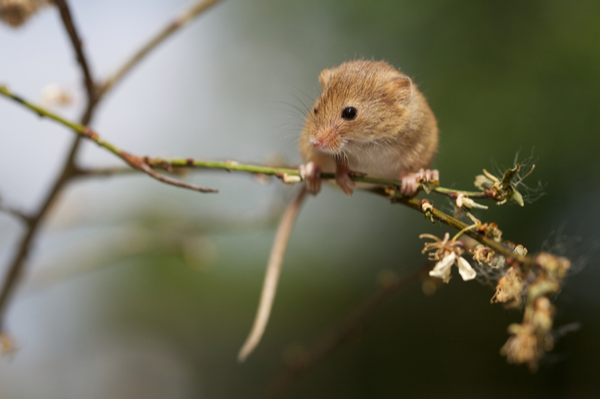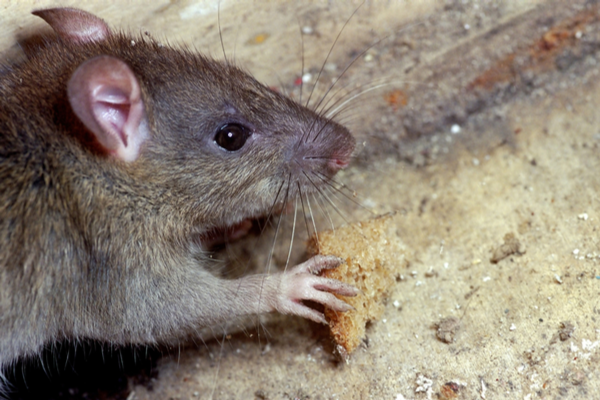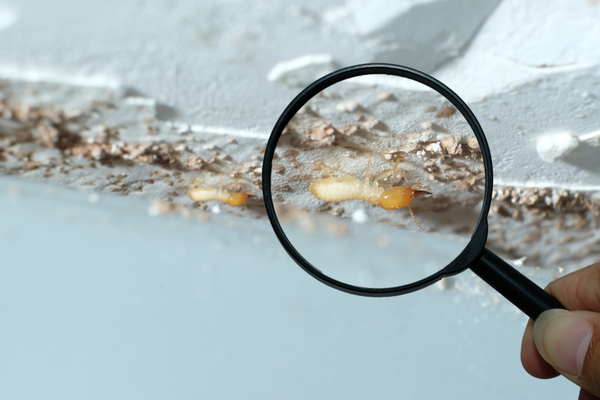“Field mouse” may be used to refer to several different mouse species. The term is most frequently applied to deer mice (Peromyscus maniculatus) to differentiate them from house mice (Mus musculus). The name “field mouse” comes from the fact that deer mice are common near open fields and rural areas.
Deer mice aren’t quite as common a pest problem as house mice, but they’re nearly as widely distributed. If you live near fields, forests, farms, or rivers, then deer mice live near you. Though they’re more comfortable living outside than house mice, deer mice are still quite interested in taking up residence inside your home if given the chance. Here’s what you should know to make sure that doesn’t happen:
What do deer mice look like?
Deer mice are 2¾ to 4” long, with 2 to 5” tails. They’re bi-colored with white belly fur and reddish-brown (deer-colored) back fur. Compared to house mice, deer mice are smaller, brighter, longer, and skinnier. Deer mouse tails are covered in short hair, while house mice tails are hairless.
Where do deer mice live?
Deer mice live throughout most of the US. They prefer to live in grasslands, forests and woodlands, and prairies. Deer mice are adept climbers and typically build their nests in high tree hollows. They also frequently build nests into sheltered outdoor areas such as decks, porches, or hollow tree stumps.
What do deer mice want?
Like any other pest rodent, deer mice are motivated by three things: food, water, and shelter. If you have deer mice in or around your home, then they’re finding each of these near you:
- Food: One big difference between house mice and deer mice is that deer mice tend to cache food. They’re particularly attracted to dry goods like nuts, seeds, birdseed, grains, dried fruit, or anything else that won’t spoil. They will stash this food near their nests to stock up for winter.
- Water: Unlike house mice, deer mice typically subsist on primarily dry diets. Consequently, they have to seek water in addition to their typical food. Many deer mice actively seek humid places where they can rely on excess condensation, runoff, or leaking moisture from plumbing pipes.
- Shelter: Deer mice have adapted well to surviving cold temperatures but mice families are still highly motivated to find warm shelters in winter. Like house mice, they will find and follow drafts and food smells through small openings to sneak inside. Deer mice frequently build nests indoors.
Why are deer mice a problem?
Deer mice are the most common carriers and transmitters of Hantavirus in the US. Deer mice droppings, urine, and other bodily fluids contain the Hantavirus pathogen. The virus can be contracted via airborne transmission, which means breathing in an environment contaminated by deer mice waste could put you at risk.
How can I keep deer mice out of my home?
To keep deer mice out of your home effectively, you have to make it as difficult for them to get inside as possible AND give them no reason to want to come inside in the first place. Here’s how to do both of those things:
- Conduct regular perimeter maintenance. Deer mice can squeeze through any crack or gap big enough to slip a pencil through. Walk around the interior and exterior of your home looking for possible weak points seasonally. Seal up gaps you find with caulk to keep deer mice from using them.
- Clean up food sources. Deer mice are attracted to dry foods and love to gather crumbs. Keep all dry goods in airtight, sealed plastic containers, seal garbage bags, bins, and dumpsters when you’re not using them, clean up spills as soon as they happen, and wipe up eating surfaces as soon as you’re finished.
- Keep your lawn clear. Deer mice make their way toward nesting sites by sneaking from hiding place to hiding place. They feel much more comfortable approaching homes when they can creep close using cover. Keeping your yard free of brush and debris will make it much more intimidating to mice and other pests.
If you think you have deer mice in your home, get in touch with Plunkett’s any time. We can remove your problem, thoroughly clean the infestation site of disease vectors, and make sure deer mice can’t bother you again.









